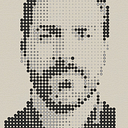How to build a Computational Dream Team: a small vademecum
Here is a small vademecum (anche nella versione ITA)
In today’s digital world, having a strong computational team is crucial for any organization that wants to thrive. Whether your goals involve developing cutting-edge AI, optimizing business processes, or simply keeping your IT infrastructure running smoothly, the right people are key.
But how do you assemble such a dream team? Here are some tips for developing a computational team that will take your organization to new heights.
Start with a clear vision. Have a well-defined strategy for how computational capabilities will further your mission. Know the types of projects and challenges the team may face. This will help identify the ideal skillsets and perspectives needed.
Cast a wide net. Don’t limit your search to just programmers or data scientists. Consider people from a variety of disciplines who bring diverse ways of thinking. You may find talent in graduates from fields like urban planning, political science or even the arts. Unique backgrounds can spur innovation.
Look for true T-shaped skills. Ideally, team members each have a depth of knowledge in their core area while also possessing broad functional literacy. They understand concepts like machine learning, cloud architecture and UX design, even if outside their specialization. This breadth fuels collaboration.
Prioritize soft skills. In addition to technical chops, evaluate candidates on traits like collaboration, communication and adaptability. Building strong relationships and workflows within the team is paramount. Interpersonal skills may predict success more than years of experience.
Build for versatility. As technologies change rapidly, ensure your team can reskill and take on new roles. Expose them to various projects to spark interest. Foster a culture where people support each other’s growth into emerging domains like blockchain, AI safety and more.
Keep diversity and inclusion central. Representation matters for achieving different perspectives and avoiding unintended bias. Actively seek candidates from all backgrounds. Make your team and workplace welcoming to people of all races, orientations, abilities and more.
Keep morale and motivation high. Treat your team well with competitive pay, benefits and work-life balance, don’t use this principle just as a slogan. Show appreciation for their efforts through praise, learning opportunities and professional development support. People will stay driven and devoted.
Assemble this dream team and your organization will gain a powerful computational asset. With the right mix of skills, backgrounds and culture, this team will take your computing capabilities to new heights.
How to keep your computational team up-to-date with emerging technologies
- Provide training and learning budgets. Allocate funds annually for each team member to pursue continuing education through online courses, conferences, seminars, etc., (allow them to actually participate).
- Hold educational sessions. Have team members lead occasional lunch-and-learn presentations on new technologies they’re exploring. This shares knowledge across the group.
- Encourage side projects. Allow time for team members to experiment with emerging tools/languages on small work-related projects of their own design.
- Bring in outside experts. Host talks from leaders in fields like AI, cybersecurity and blockchain who can provide insights on promising innovations.
- Subscribe to technology newsletters/podcasts. Have the team consume sources together to stay abreast of trends and developments.
- Attend technology conferences. Send team members to events where they can learn about cutting-edge research and network with pioneers.
- Set an “innovation team.” Designate a small group to intensively focus on scanning the horizon and testing prospective technologies.
- Offer certification reimbursement. Help fund certifications in new skills to motivate ongoing mastery and ensure résumés stay current.
- Highlight technology growth in reviews. During performance evaluations, recognize efforts to expand knowledge into forward-thinking domains.
- Foster a learning culture. Lead by example and make continued learning part of your organizational DNA so teams proactively self-educate.
The goal is to expose your team to technologies early to empower informed, strategic decision-making and problem-solving as fields evolve rapidly.
Here are some key soft skills that are important for a successful computational team
- Communication — Being able to clearly explain complex technical concepts to both technical and non-technical audiences.
- Collaboration — Working well with others, soliciting input, sharing knowledge, and combining skills to solve problems (we often see unnecessary jealousy in the R&D sector).
- Adaptability — Willingness to take on new types of projects, work with different teams, and adapt to changing priorities and technologies.
- Critical thinking — Ability to analyze problems, evaluate options, troubleshoot issues, and think creatively to resolve challenges.
- Time management — Effectively planning work, meeting deadlines, and balancing multiple long-term projects simultaneously (it is important that the works are completed within the standard 40 hours of the contract, exceeding is not an advantage but an organizational failure).
- Attention to detail — Ensuring work is accurate, thorough, and properly documented. Catching small errors or inconsistencies.
- Customer service — Understanding customer needs and providing responsive, helpful support when issues arise.
- Conflict resolution — Navigating disagreements constructively and finding compromise or consensus.
- Learning orientation — Continuous drive to expand skills and stay knowledgeable about new developments in the field.
- Team player — Prioritizing collaborative success over individual achievements and helping others on the team. Personal advice, don’t wait for your colleagues to look for you to ask for help, This is always good but it is also true that there is reticence in doing so because this attitude is often self-assessed as a lack of preparation — wrong. It is much more important to be available to them even when you are not expressly asked because you also show real interest in their work. This has always been my mantra at home and abroad. ;)
Developing these interpersonal skills is just as important as technical expertise for computational teams tackling complex modern challenges.
Anthology
What is a Computational Designer? [Cosa è un Progettista Computazionale?] — simply
The Rise of the Computational Designer [L’ascesa del progettista computazionale]
